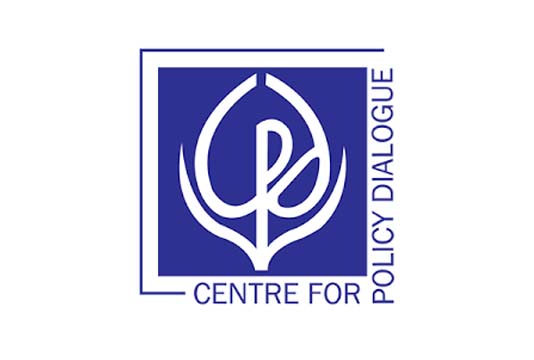News Flash
News Flash

DHAKA, Oct 9, 2025 (BSS) - The Centre for Policy Dialogue (CPD) has said that an independent commission should be established in Bangladesh that can provide both pre-legislative and post-legislative support to ensure the desirable state of impartial scrutiny, stronger accountability, and more democratic practices.
The think tank mentioned that the 13th new parliament may consider setting up a ‘Parliamentary Commission for Democracy, Legislative, Executive and Legal Affairs.’
CPD put forward the suggestion while unveiling a study report on ‘Ensuring Accountability of the Majority Party in the Parliamentary System of Bangladesh’ at a dialogue held at a city hotel.
In partnership with the European Union in Bangladesh, CPD organised the dialogue titled ‘Proposed Upper House in the National Parliament: Can it Ensure Accountability of the Majority Party?’
Michael Miller, Ambassador and Head of Delegation, Delegation of the European Union to Bangladesh; Shama Obaid Islam, Organising Secretary of the Bangladesh Nationalist Party (BNP); Dr Badiul Alam Majumdar, Member of the National Consensus Commission; Ruhin Hossain (Prince), Member of the Central Committee of the Communist Party of Bangladesh; Akhtar Hossain, Member Secretary of the National Citizen Party (NCP) and Abul Hasan Rubel, Central Executive Coordinator of the Ganosamhati Andolon were present at the dialogue as special guests.
Professor Rounaq Jahan, Distinguished Fellow of the CPD presided over the dialogue.
Dr Asif M Shahan, Professor of the Department of Development Studies in University of Dhaka and Professor Abdul Alim, member of the Election Commission Reform Commission were the key discussants.
Dr Khondaker Golam Moazzem, Research Director, CPD and Professor Nizam Ahmed, University of Chittagong, presented the keynotes.
Shama Obaid Islam said that BNP's 31-point agenda outlines the path to ensure fundamental rights such as education, healthcare, employment and democracy of the country.
“BNP wants a free, fair and participatory election. Everyone must unite to ensure that the upcoming national parliamentary election is held in free, fair and impartial manner,” he added.
Regarding upper house in Bangladesh’s parliament, she said, BNP also wants to introduce upper house in the country’s national parliament for ensuring accountability, but more discussion is needed on the selection process in upper house.
In his speech, Akter Hossain strongly advocated for the establishment of an upper house in Bangladesh's parliament, arguing that such a body is essential to curb the nation's severe constitutional crises and prevent the rise of authoritarianism.
“The efficacy of this upper house is entirely contingent upon its representatives being elected based on Proportional Representation (PR),” he added.
He warned that without the PR system, discussions about the benefits of an upper house lose all relevance.
The NCP leader said the primary crisis in Bangladeshi politics is the power held by a political party securing a two-thirds majority, which allows them to unilaterally amend the Constitution.
Hossain stated that this power has often resulted in constitutional amendments reflecting only the ideology, programmes, and plans of a single party, rather than the will of the people.
Michael Miller underscored the EU’s firm commitment to supporting Bangladesh's political transition ahead of the upcoming elections, while emphasizing that the ultimate measure of success extends far beyond the polls themselves and rests on robust accountability and structural reforms.
“The EU is standing with Bangladesh as the country moves towards holding elections early next year. The EU is actively collaborating with the Bangladesh Election Commission, along with international and domestic partners, on critical issues such as voter education and domestic observation,” he added.
During the presentation, Khondaker Golam Moazzem said the Consensus Commission should put focus on different reform proposals targeted to the judiciary, local government, electoral system and political parties in the final consensus list.
The 13th new parliament should put focus on strengthening the existing parliamentary system by necessary legal, institutional and operational measures, he added.
To end the cycle of parliamentary boycotts and restore accountability, he noted that Bangladesh must first address rigged elections, which erode legitimacy and push the opposition out of Parliament.
“Ensuring free, fair, and transparent polls through an empowered Election Commission is the starting point. Inside Parliament, meaningful opposition participation should be guaranteed by limiting excessive party control over MPs and encouraging greater independence in representing constituencies,” he added.
Regarding the independent commission, Moazzem said the main purposes of the commission are constitutional, legislative and administrative principles and techniques that serve the efficiency of democratic institutions and their strengthening.
“It also aims to protect fundamental rights and freedoms that involve the participation of the citizens. Furthermore, it contributes to local and regional self-government for the enhancement of democracy. To ensure the parliamentary system more accountable, he said, reforms must aim to reduce procedural barriers and broaden the scope for participation by private members,” he added.
He said the commission also encourages setting up similar bodies in other regions of the world and links them to run joint programmes within its field of activity.